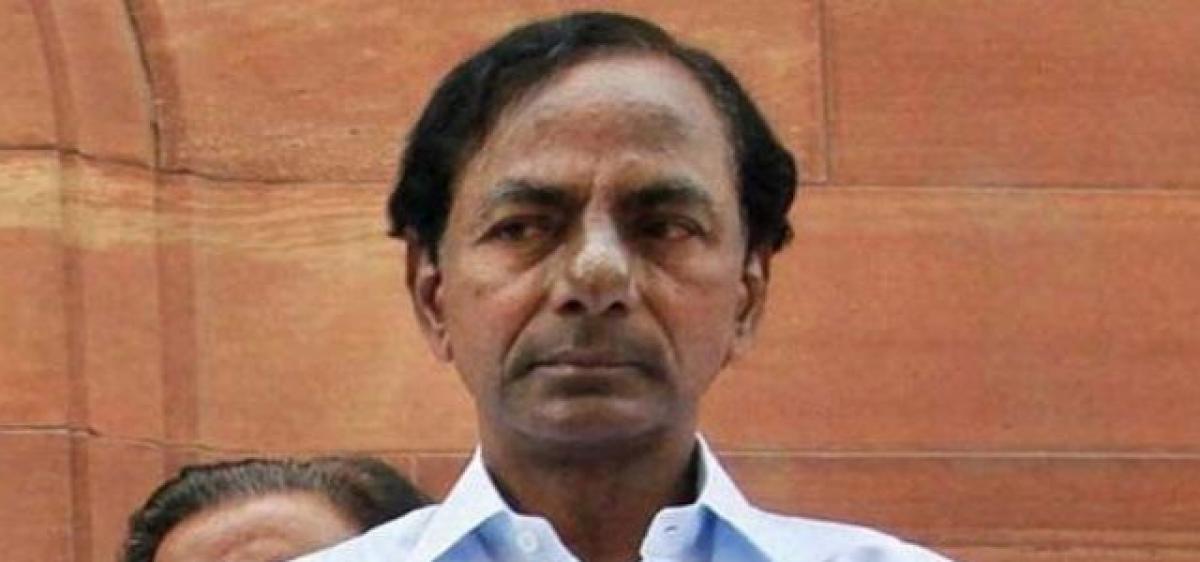Live
- A Guide to Temperature and Humidity Standards in Data Center Server Rooms
- Gadwal collector briefs on details of voters
- Jupally Krishna Rao takes part in Alampur rallu
- Bharath Prasad files 3rd Nomination
- Baisakh Month: A Time of Auspicious Beginnings and Sacred Festivals
- Oust BJD govt for overall development, says Shah
- Unveiling the Hidden Gems: Surprising Health Benefits of Garlic Peels
- Overcoming Sleep Struggles: A Comprehensive Guide to a Restful Night
- RTC bus hit the auto
- MLA Kuchukula Rajesh Reddy participated in the Birappa festival
Just In

The Telangana government hopes to place the newly passed state reservation act in the Ninth Schedule of the Constitution to make it immune from judicial review. But, this has both political and constitutional challenges.
The Telangana government hopes to place the newly passed state reservation act in the Ninth Schedule of the Constitution to make it immune from judicial review. But, this has both political and constitutional challenges.
The TRS government does not have a favourable political atmosphere in the current Parliament. Notwithstanding the fact that the state government enjoys considerable congeniality with the central BJP government, the fact remains that a party that is ideologically averse to giving quotas for Muslims cannot in any way enable the Telangana act to be placed in the Ninth Schedule.
To protect 69 per cent reservations, Parliament placed Tamil Nadu quota legislation in the Ninth Schedule. Laws placed in the Ninth Schedule were considered to be immune from judicial review till the latter day Constitutional interpretation by the Supreme Court.
In SR Bommai & Ors. v. Union of India & Ors (1994), the Supreme Court held that it is a cardinal principle of our Constitution that no one can claim to be the sole judge of the power given under the Constitution and that its actions are within the confines of the powers given by the Constitution. Neither the state legislature nor the Parliament can claim to have powers to enact beyond what is constitutionally permissible.
The Telangana reservation act is constitutionally vulnerable on at least two counts. First, as it aims to cover the entire Muslim population as argued earlier in these columns, it tantamounts to religion-based quotas. Thus it goes against the secular character of Indian State which is the basic structure of the Constitution. Even Parliament has no power to contradict the basic structure.
Secondly, the act is also constitutionally vulnerable as the total quantum of reservations exceeds 50 per cent. This militates against the equality provisions of the Constitution that need to be balanced with the provisions for social justice, as held by Supreme Court in several of its judgements.
In early 1980s , the Supreme Court in Waman Rao v Union of India and Minerva mills v Union of India held that laws included in the Ninth Schedule after Kesavananda Bharati verdict will be subject to judicial scrutiny on the ground that they damage the basic structure of the Constitution.
In IR Coelho v State of Tamil Nadu, 2007, the Constitutional bench of the apex court held that validity of any law placed in the Ninth Schedule may be tested by courts against the basic structure doctrine. If the law infringes the essence of any of the fundamental rights or any other aspects of the basic structure, it should be struck down.
Indian jurisprudence clearly states that reservations are an exception to the equality provisions. As observed by the apex court in IR Coelho case, if an exception becomes a general norm, it creates a Constitutional black hole.
Thus, even if the TRS government succeeds in convincing the BJP-led central government to include the state act in the Ninth Schedule, it is still not immune to judicial review.

© 2024 Hyderabad Media House Limited/The Hans India. All rights reserved. Powered by hocalwire.com







